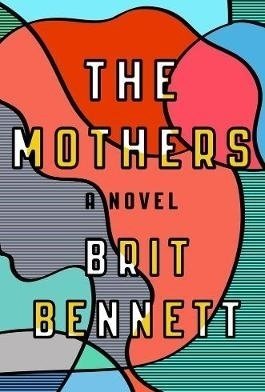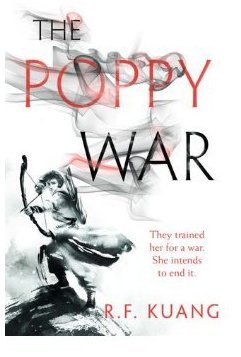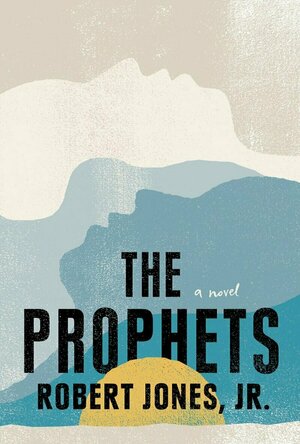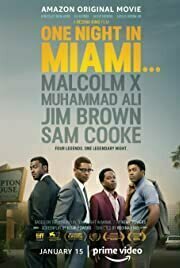Kristy H (1252 KP) rated The Mothers: A Novel in Books
Feb 8, 2018
I'm a strange person who is often wary of reading hyped books, so I put off reading this novel for a while. And I certainly did enjoy it; I can't say that I didn't. I basically read it in one day, and I was very much drawn into the story. While Bennett focuses her story on Nadia, Luke, and Aubrey, she also employs a "Greek chorus" of sorts, composed of "the mothers"--the female elders from the church--who tell the story of Nadia from their third person point of view. It's a different sort of method to employ, but Bennett pulls it off. Still, for me, I found a lot of this novel predictable, and I never really became completely attached to any of the characters. What I did enjoy is how much of the tale is rooted in the bits of life that can drag us all down. It some ways, it very well details the mundane aspects of life - making them seem interesting and nuanced. We basically see the entire span of Nadia's life, which was compelling. However, while there is a depth and message to some of Bennett's story, I can't see it sticking with me for the long-term.
Overall, this is well-written novel and certainly worth picking up. Did I find it worth all the hype? Probably not. But I'm no doubt a bit more cynical than most. It's still an intriguing story that I enjoyed reading.
Goddess in the Stacks (553 KP) rated The Poppy War (The Poppy War #1) in Books
Oct 9, 2018
Rin is an interesting character; she's been hard done by, yes, but she makes decisions that only make things harder on herself. So I feel for her a little, but at the same time, girl. Check yourself. What's been done to you doesn't justify what you plan to do to others. I am hoping she comes to see that in the next book, because her rage and need for vengeance definitely gets the best of her in this one.
The Poppy War is an excellently written blend of military fantasy, epic fantasy, and coming-of-age novel. Unlike some books, where the military aspect far overshadows the characters, leaving them flat, Poppy War doesn't ignore the characters to focus on the bigger picture. It's a very good mix of both close-up focus on characters, fights, battles, and zoomed-out strategy and war. It's probably the best military fantasy I've read, and the Asian aspect of it makes it even better. So much military fantasy is western European, or Steampunk, or both. I've been finding more and more Asian and African fantasy, and I am SO HERE FOR IT. I need to try to find more South American fantasy. I know it's out there.
I will definitely be watching for the next book in this series, because it's awesome.
You can find all my reviews at http://goddessinthestacks.com
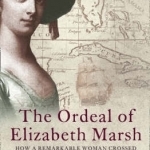
The Ordeal of Elizabeth Marsh: How a Remarkable Woman Crossed Seas and Empires to Become Part of World History
Book
From the author of 'Britons', the story of the exceptional life of the intrepid Elizabeth Marsh - an...
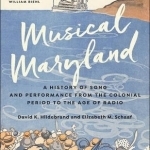
Musical Maryland: A History of Song and Performance from the Colonial Period to the Age of Radio
David K. Hildebrand and Elizabeth M. Schaaf
Book
In Musical Maryland, the first comprehensive survey of the music emanating from the Old Line State,...
ClareR (6062 KP) rated The Prophets in Books
Jan 5, 2021
The story centres around the slaves on the Elizabeth Plantation (also known as ‘Empty’ to the slaves), and in particular, Samuel and Isaiah. They are betrayed by the other slaves, as if by revealing their love, it will make their lives safer. Of course this is not the case, as we see when we read the chapters centred around some of the other slaves. We learn about the inhumane treatment of the slaves by their immoral white owners (or toubabs, as they are called by their black slaves). I felt that the white people in this book had a mad, mentally unhinged quality about them: after all, how else could you reconcile treating human beings worse than animals?
I found the chapters written from the African people’s perspective, as they were free then captured and imprisoned, so interesting. It made them even more real to me. These were real people (as opposed to the animals that they were seen as by the slavers) with families, traditions, lives, loves and beliefs. The scenes on board the slave ships were harrowing.
It has taken me over a week to tackle this review. This book really affected me deeply, and there were many times that I had to put the book down and walk away. Then, I would feel guilty that I had the luxury of doing just that, unlike the slaves who lived every moment of their lives as some white mans possession to do with as he saw fit.
I can’t believe that this is a debut novel. The writing is beautiful, even in the most horrific moments. The magical elements add a suggestion of hope and the indomitable spirit of these people. And the ending is just perfection. I’m sure that this book will win awards - it SHOULD win - and I’m glad that I’ve had the opportunity to read it.
Many thanks to the publisher for granting me access to this book via NetGalley. It has been a privilege to read it.
BankofMarquis (1832 KP) rated One Night in Miami (2020) in Movies
Apr 15, 2021
Such is the case with ONE NIGHT IN MIAMI the Major Motion Picture Directorial debut of Oscar Winning Actress Regina King and based on the stage play by Kemp Powers. This film/play fictionalizes the true story of 4 powerful African American legends that meet up in a hotel room, one night in Miami.
And…this film feels like 4 people sitting in a hotel room talking - and that’s the problem with it. What should be powerful dialogue (and, I’m sure, IS powerful when seen live on stage) just doesn’t translate well enough on the screen, so the film just sits there demanding we pay attention, while not inviting us in to do so.
Since this is a story about 4 people sitting around talking, the acting needs to take center stage and hold our attention and, quite frankly, it just does not. Eli Goree as Cassius Clay, Aldis Hodge as Jim Brown and Leslie Odom, Jr. as Sam Cook are all “fine” in their roles, but they don’t rise above the script and direction. Odom gets an Oscar nod for his turn in this film, but I have to think that, maybe, it is as much for his turn in HAMILTON as it is in this film.
Only Kingsley Ben-Adir as Malcolm X shows a spark and draws an emotional response in this film and that might not be fair to the other actors for he has the flashier role with the most speeches.
The Direction by King and the Script by Kemp Powers (based on his stage play) has some moments, but never draws the audience in. It keeps everyone at arms length and doesn’t touch the soul.
The subject matter in this film is an important one, and depicts a pivotal time in American History, but other films do a better job of driving that point home by inviting the audience into the conversation.
Letter Grade: B-
6 stars (out of 10) and you can take that to the Bank(ofMarquis)
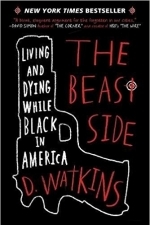
The Beast Side: Living (and Dying) While Black in America
Book
A New York Times Best Seller! To many, the past 8 years under President Obama were meant to...
politics social issues
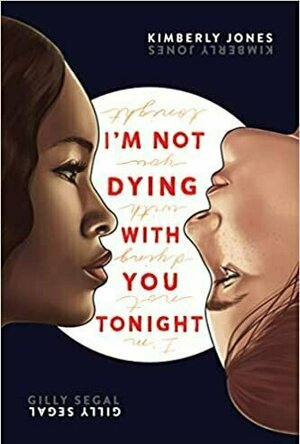
I'm Not Dying With You Tonight
Kimberly Jones and Gilly Segal
Book
"An absolute page turner, I'm Not Dying with You Tonight is a compelling and powerful novel that is...

National Geographic Traveler Magazine
Travel and Magazines & Newspapers
App
National Geographic Traveler is the world’s most widely read travel magazine. Through powerful...

Min valutakalkulator pro
Finance and Productivity
App
-Utsalg: 50 % bare de første 3 dagene, prisen er 21.00kr istedenfor 28.00kr- min valutakalkulator...
